My friend Rev. Irene Monroe (bio) posted a column last week on Obama's absence at the 40th anniversary commemoration of MLK's assassination. Clinton and McCain attended. But where was Obama?
One of Obama's political advisors, Princeton University professor and author of Race Matters, Cornel West criticized Barry at HuffPo:
“I want to say that I’m deeply disappointed that my dear brother Barack Obama decided not to go pay tribute and lay his wreath for the great Martin Luther King, Jr. That brother Martin’s profound love and deep sacrifice for black people, America and humanity is in no way reducible to political calculations, even for the campaign for presidency. That Martin Luther King Jr.’s deep commitment to unarmed truth and unconditional love can in no way be subject to strategies for access to political power.”
Rev. Irene pondered:
Was this a public backhand slap from West signaling to the public, as well as to Obama, his concerns about Obama’s calculated ambitions to the White House?
Or, as many Obama supporters in the African American community are now speculating, is there both a personal and ideological rift between West and Obama?
Given West’s prominence and respect in the African American community nationwide, the Obama campaign knows if West breaks publicly from the campaign he’ll take a substantial portion of black voters away from Obama come November (if Obama wins the Democratic nomination).
Having won the majority of African American voters in the Tennessee primary, Obama may have felt he did not need to come back to the state to do face time.
But black talk show radios were abuzz with listeners calling in expressing their disappointment.
Tavis Smiley, one of America’s most celebrated and respected media personalities and author of the bestseller Covenant With Black America, called into the Tom Joyner Morning Show. Smiley asked listeners if Obama’s absence was another signal of Obama only courting the African American vote when it is political advantageous for him to do so.
When the State of the Black Union hosted in NOLA convened, an "event [that] gathers a 'Who’s Who' of black intellectuals, pundits, activists, entertainers and politicians to discuss and brainstorm where black America is and where it is headed," Barry was absent again. He offered his wife Michele as his surrogate, but Obama, too busy on the campaign trail to attend this most auspicious summit, caused African Americans to question if his ambitions were most important to Obama. Rev. Irene pointed to criticism from Darryl Fears:
As the first black person to have a legitimate shot at a presidential nomination, defeating Sen. Hillary Clinton's rich campaign juggernaut, Obama is virtually a third civil rights movement, the manifestation of Rev. Martin Luther King Jr.'s dream. His candidacy has produced a fervor in black America born of centuries of wanting. Nearly every black vote that Clinton thought was hers at the beginning of the race has been siphoned by Obama.
Each of the presidential candidates were invited to speak [at the State of the Black Union], but only Sen. Hillary Clinton accepted. Clinton is desperate to bolster her flagging campaign with a larger share of the black vote after losing all but a small percent to Obama.
Rev. Irene concluded in her column:
And in Obama winning our votes, he must also hear and heed to the moral imperative and hurt expressed by West:
“I have a very deep disagreement with my dear brother, Barack Obama — in this case, commitment to truth is in tension with the quest for power.”
Otherwise, we must wonder, if Obama can diss King, what manner of man do we have here?
According to Emil Jones, Jr., Obama is a man who seeks pow-er. That's what the president of the Illinois Senate said Obama wanted of him in 2003.
"And [Obama] said to me. . .‘You’re the senate president now, and with that, you have a lot of pow-er.’ ” Jones stretched out the word, as if savoring the pleasure of it, and his voice became very quiet as he continued: “And I told Barack, ‘You think I got a lot of pow-er now?,’ and he said, ‘Yeah, you got a lot of pow-er.’ And I said, ‘What kind of pow-er do I have?’ He said, ‘You have the pow-er to make a United States sen-a-tor!’ ” Jones let out a soft, smoky laugh. “I said to Barack, I said, ‘That sounds good!’ I said, ‘I haven’t even thought of that.’ I said, ‘Do you have someone in mind you think I could make?,’ and he said, ‘Yeah. Me.’ ”
Jones let the words hang for a moment, and then went on. “The most interesting conversation. And so I said to him, ‘Let me think about this.’ ” Obama knew that Jones’s support could single-handedly freeze the discretion of other powerful politicians in the state, and put endorsements of possible rivals on ice. “We met a little later that day, and I said, ‘That sounds good. Let’s go for it.’ ”
The rest is history.
Seeking power isn't bad or wrong if one's intentions to use it once acquired hastens the good of everyone. Those who share power, serve it justly with '"unarmed truth and unconditional love." Think of great people of history who have done just that: Dr. King, JFK, Mother Teresa, Ghandi, Susan B. Anthony, and so forth.
I didn't personally like LBJ, but in the political arena, he exercised presidential power to push civil rights legislation responding to Dr. King's righteous appeals for justice, signed it into law, and did so at the detriment to his party. Truman exhibited his power when he ended racial segregation of the military by executive order at the expense of his party, a decision that initially precipitated the exodus of Dixiecrat segregationists to the GOP that eventually transformed the South into a Republican bastion. These were not perfect men. I vehemently disagreed with their use of military force. However, these examples were acts of sacrifice to answer the call of courage grasping the levers of power embodied in the Constitution that we are all created equal.
As Maya Angelou so beautifully explained, "Without courage, we cannot practice any other virtue with consistency." And what is power without virtue?
Consider Obama's opposition to a revote in Michigan and Florida. Is this a positive applications of his pow-er? Or is he more interested in winning? Rewind Donnie McClurkin. Was his using his pow-er to denounce homophobia? Or was he pandering to homophobic voters? What manner of pow-er did he display to billionaires at a fundraiser in associating the Clinton Administration's job growth with Bush's abysmal record and in belittling small town folks by characterizing them as "bitter" and clingy?
Obama's silence against misogyny and sexism--attacking his opponent Hillary Clinton's emotions, and in so doing, those of women in general--tells me all I need to know about the nature of the pow-er he seeks.









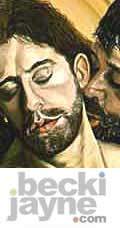
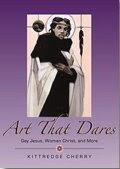
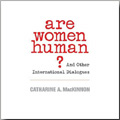
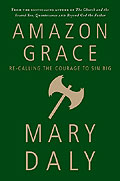
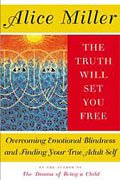


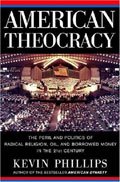





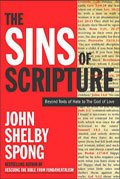

|